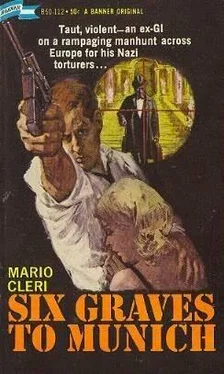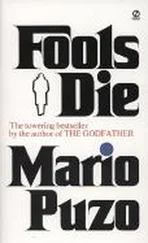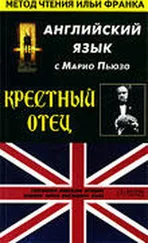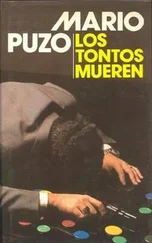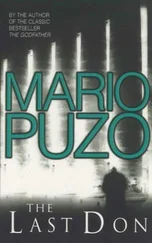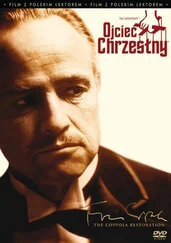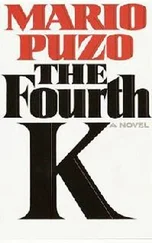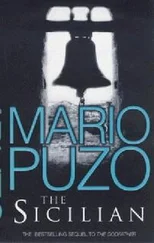He bent down to kiss her, and she said, “Wait until he finishes with his court; wait till the end of the day.”
“I’ll have a better chance if I catch him coming back from lunch. Be in the car.” He touched her cheek lightly. “There’s a good chance I’ll get away.”
Sad-eyed, they smiled at each other with pretended confidence; then Rosalie took off her white tunic and tossed it on a chair. “I’ll go now,” she said, and without another word, without a backward look, she left the clinic and walked through the courtyard to the street beyond. Rogan watched her before he, too, left the clinic and climbed the interior stairs to the main-floor corridor of the Munich Palace of Justice.
The corridor was filled with convicted people waiting to learn their punishments, and with them were families and friends, as well as the defenders and dispensers of justice. They gradually began disappearing into the individual courtrooms, until the cool dark hall was empty. There was no sign of von Osteen.
Rogan walked down the hall to the courtroom where von Osteen had sat that morning; he was late. The court was already in session, and had been for some minutes. It was ready to sentence the criminal before it. Von Osteen, as president of the court, sat between his two fellow judges. They all wore black robes, but only von Osteen wore the high conical hat of ermine and mink that designated the chief judicial officer, and his figure seemed to exert a dread fascination on everyone in the courtroom.
He was about to sentence the convicted criminal before him. The decision was announced in that magnificent persuasive voice that Rogan remembered so well. It was a life sentence for the poor wretch before him.
Rogan felt an enormous relief that his search was ended. He walked a hundred feet past the doors of the courtroom and stepped into one of the empty niches in the wall of the corridor, a niche that for a thousand years had held the armor of a German warrior. He stood there for nearly an hour before the people in the courtroom came out of the oaken doors into the corridor.
He saw a black-robed figure exit from the courtroom through a small side door. Von Osteen was coming toward him through the shadowy corridor. He looked like an ancient priest prepared for sacrifice, black robes flapping, the conical hat of ermine and mink like a bishop’s mitre, holy and untouchable. Rogan waited, blocking the corridor. He drew the Walther pistol and held it before him.
They were face-to-face now. Von Osteen peered through the shadowy light and whispered, “Rogan?”
And Rogan felt an overwhelming joy that this last time he was recognized, that his victim knew the crime for which he must die. He said, “You condemned me to death once.”
He heard the hypnotic voice say, “Rogan, Michael Rogan?” And von Osteen was smiling at him and saying, “I’m glad you’ve finally come.” He reached up and touched his furred hat. “You are far more terrible in my dreams,” he said. Rogan fired.
The pistol shot clanged through the marble corridors like some great bell. Von Osteen staggered back. He held up both hands as if to bless Rogan. Rogan fired again. The black-robed figure began to sag, the conical hat making the fall majestic, sacrilegious. People ran into the corridor from the adjoining courtrooms, and Rogan fired one last bullet into the body lying on the marbled floor. Then, with the pistol in his hand, he ran out of the side exit into the sunlit square. He was free.
He saw the waiting Mercedes just a hundred paces away and started for it. Rosalie was standing beside the car, looking tiny, as if she were at the end of a long tunnel. Rogan started running. He was really going to make it, he thought; it was all over, and he was going to make it. But a middle- aged, mustached policeman, directing traffic, had seen the gun in Rogan’s hand and rushed from his post to intercept him. The policeman was unarmed. He stood in Rogan’s path and said, “You are under arrest; you cannot brandish a weapon in public.”
Rogan brushed him aside and walked toward the Mercedes. Rosalie had disappeared now; she must be inside the car starting the motor. Rogan desperately wanted to reach her. The policeman followed him, grasping his arm, saying, “Come now, be sensible. I am a German police officer, and I place you under arrest.” He had a thick Bavarian accent that made his voice sound friendly. Rogan hit him in the face. The policeman staggered back, then ran after him clumsily, trying to herd Rogan into the Palace of Justice with his heavy body, yet afraid to use physical force because of the pistol in Rogan’s hand. “I am a police officer,” he said again, astonished, unable to believe that anyone would refuse to obey his lawful commands. Rogan turned and shot him through the chest.
The policeman fell against him, looked up into his eyes, and said, with surprise, with innocent horror, “O wie gemein Sie sind.” The words rang in Rogan’s mind. “Oh, how wicked you are.” He stood there, paralyzed, as the policeman fell dying at his feet.
Frozen in the sunlit square, Rogan’s own body seemed to disintegrate, the strength running out of it. But then Rosalie was beside him, taking his hand and making him run. She pushed him into the Mercedes and then roared out of the square. She drove wildly through the streets of Munich to reach the safety of their room. Rogan’s head had tilted to the right, away from her, and she saw with horror a trickle of blood seeping out of his left ear, the blood running against gravity, propelled by an inner pump gone awry.
They were at the pension. Rosalie stopped the car and helped Rogan get out. He could barely stand. She took the soaked gauze out of his left jacket pocket and held it to his mouth. His head jerked up and she could see the scarlet snake of blood trickling from his left ear. He was still clutching the Walther pistol in his right hand, and people in the street were staring at them. Rosalie led him into the building and helped him up the stairs. The spectators would surely call the police. But for some reason, Rosalie wanted him behind closed doors, shielded from everybody’s eyes. And when they were alone and safe she led Rogan to the green sofa and made him lie down and put his head in her lap.
And Rogan, feeling the ache of the silver plate in his skull, knowing he would never dream his terrible dreams again, said, “Let me rest. Let me sleep before they come.” Rosalie stroked his brow, and he could smell the fragrance of roses on her hand. “Yes,” she said. “Sleep a little.”
A short time later the Munich police entered the room and found them so. But the seven men in the high-domed room of the Munich Palace of Justice had finally killed Rogan after all. Now, ten years later, his damaged brain had exploded in a massive hemorrhage. Blood had poured from every aperture of his head-from his mouth, his nose, his ears, his eyes. Rosalie sat quietly, her lap a basin filled with Rogan’s blood. As the police came forward she started to weep. Then slowly she bowed her head to bless Rogan’s cold lips with a final kiss.
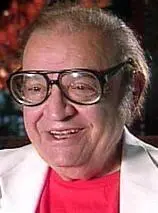
The son of Italian immigrants who moved to the Hell’s Kitchen area of New York City, Mario Puzowas born on October 15, 1920. After World War II, during which he served as a U.S. Army corporal, he attended City College of New York on the G.I. Bill and worked as a freelance writer. During this period he wrote his first two novels, The Dark Arena (1955) and The Fortunate Pilgrim (1965). When his books made little money despite being critically acclaimed, he vowed to write a bestseller. The Godfather (1969) was an enormous success. He collaborated with director Francis Ford Coppola on the screenplays for all three Godfather movies and won Academy Awards for both The Godfather (1972) and The Godfather, Part II (1974). He also collaborated on the scripts for such films as Superman (1978) , Superman II (1981), and The Cotton Club (1984).
Читать дальше
